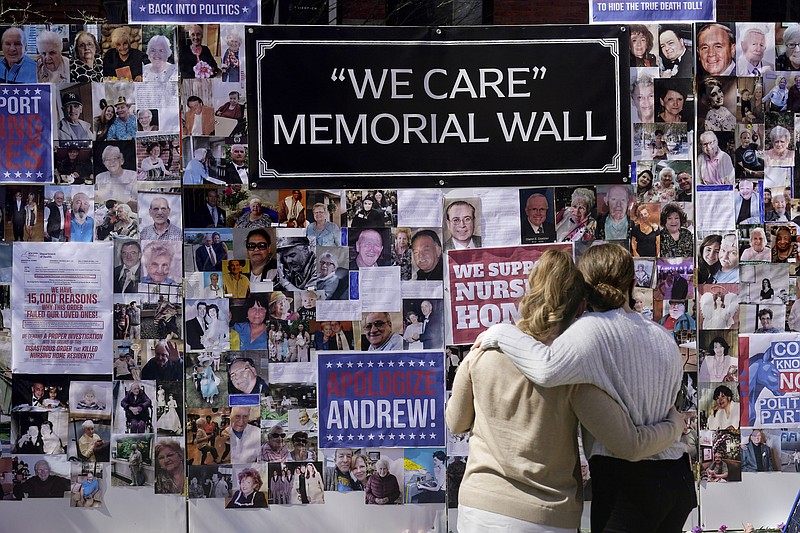ALBANY, N.Y. -- After a deadly year in New York's nursing homes, state lawmakers have passed legislation intended to hold facility operators more accountable for neglect and potentially force them to spend more on patient care.
Rules passed in recent days as part of a state budget deal would require for-profit homes to spend at least 70% of their revenue on direct patient care, including 40% on staffers who work directly with residents.
Under the deal, set to be signed by Gov. Andrew Cuomo, a Democrat, home operators will also face limits on their profit margins. Any profits in excess of 5% would have to be sent to the state.
"The goal is here to not only protect people in nursing homes but to dissuade bad actors from coming into this business," said Sen. Gustavo Rivera, Senate health committee chairman. New York's budget would also send $64 million to nursing home and acute-care facilities to increase nurse staffing levels.
The nursing home industry has blasted the new revenue requirements, saying operators need flexibility for things like construction costs.
[CORONAVIRUS: Click here for our complete coverage » arkansasonline.com/coronavirus]
Stephen Hanse, president and CEO of the New York State Health Facilities Association, which represents nursing homes, said the big problem in the industry isn't greed, but poor reimbursement rates for care. He said it costs $266 on average to provide skilled nursing care per resident each day, but New York pays an average of $211.
The state's new spending mandate, he said, "harms the highest-quality, fully staffed 4- and 5-star nursing homes by requiring that funds be redirected from other patient care investments and building improvements and be used only for certain staff."
More long-term-care residents have died of covid-19 in New York than in any other state. Nursing homes alone have reported 13,800 deaths.
"I had absolutely no idea this was how this nursing home industry was run until I had to deal with it," said Cecelia Potter, 63, of Cobleskill, whose 74-year-old husband is in a central New York nursing home.
Potter said her husband, a Navy veteran, hasn't been showered in weeks, receives little attention from overstretched aides and has declined "dramatically" over the past year.
She said she has seen the owner of her husband's nursing home driving fancy cars, and wants to know how much money he makes from residents whose care is funded largely by Medicaid.
"We need massive nursing home reform, statewide we do, and it's probably countrywide," she said. "Just simply because these people that own these places are allowed to get away with a lot. They shouldn't be. This is our most vulnerable population."
One new law, signed by Cuomo last week, repeals a legal shield that protected nursing homes from some lawsuits during the pandemic.
New York's law was among the nation's most protective, and state Attorney General Letitia James called for lawmakers to repeal it in January.
"What the immunity provision did is give a green light to facilities to engage in practices and staffing patterns known to create unreasonable risk to residents," said Syracuse University School of Law professor Nina Kohn.


